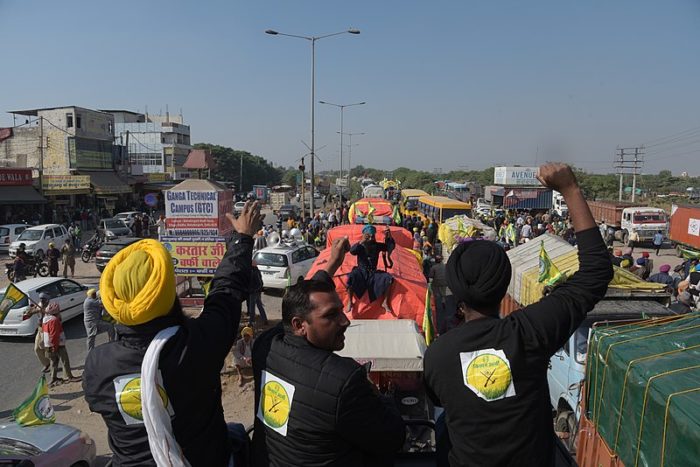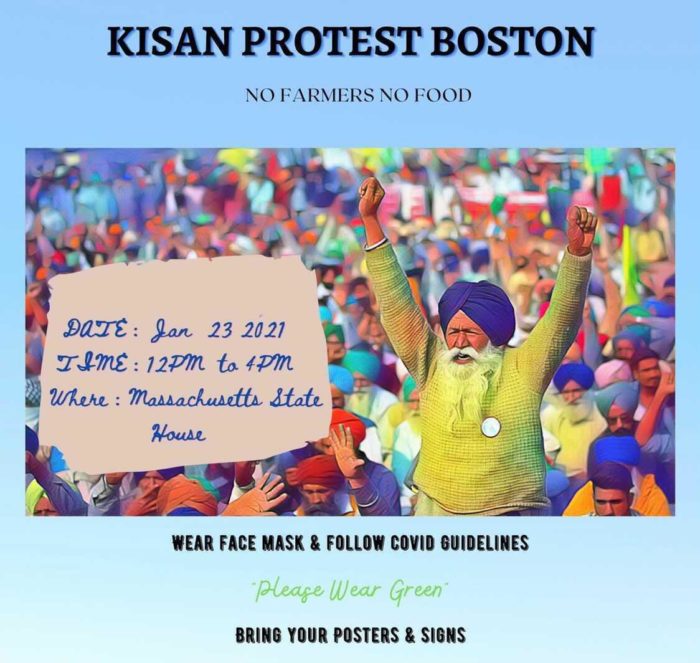
A look at the Indian Farmer’s Agitation with a democratic perspective
Thomas Jefferson once said, “When injustice becomes law, resistance becomes duty.” Several months back the Indian parliament passed three laws without any debate or consultation and with a voice vote. They did not consider what type of message this would give. Especially coming from the largest democracy in the world. These laws will lead to the eventual closure of the traditional mandi (regulated Agricultural Produce Marketing Committee yards) system and the end of the Minimum Support Price. Once the government procurement system and MSP are done away with the price of crops will continuously fall. Farmers will be left at the mercy of corporations. Voices will be silenced as these laws even take away a farmer’s access to the court system in the “dispute resolution clause.” Many have wondered what has led to this agitation that created the largest protest in the history of the world. What most people miss is this is not just a fight for a better living, to many this has become a fight for survival.
For over a month now thousands of farmers have been camping in India’s capital city peacefully protesting the passage of these laws. They have overcome many obstacles. If protesting in the cold in the middle of a pandemic was not challenging enough; the Modi government did everything they could to obstruct the right to peaceful protest. The government used violent measures like tear gas, water cannons, and even beating them with sticks. Their resilience was not only demonstrated in the way they overcame any hurdles that came their way but their patience. Perhaps some of the most profound images found in this protest were of the elderly that were offering food, water, and refreshment to the same police that was shown beating them earlier. As hard as it was to see images of elderly farmers who were severely injured for merely exercising their right to protest it was simultaneously very empowering. These farmers knew violence was not an answer. They came prepared to win this fight through peaceful civil resistance. That has been how many righteous battles in the past have been won, be it the Indian independence movement or the civil rights movement in America.
But the battle on the ground has only been half of their concern. Once the government learned that the fear of tear gas could not deter these protesters in their determination to fight for their rights, they began a misinformation campaign powered by the state-controlled media. The farmers have faced accusations from being called communist, terrorist, and separatist to being called anti-national.
Coming to the question of protesters being anti-national, then let us take a deeper dive into what is considered nationalism. I will use another quote that is also often attributed to Jefferson, “Dissent is the greatest form of patriotism.” The question arises, is blind obedience to government patriotism? A government is a means to achieve ends. Certainly, one of those ends is to look out for the well-being of all of its citizens and not a few rich corporations. When a government has failed in that measure it is not defending the liberties of its citizens but diminishing it. At that point, it is one’s civic duty to make one’s voice heard as a citizen and dissent. Citizens that take part in dissent prove that they care that their country is taking the right steps towards a better future. They prove that they are not apathetic to unjust laws that are detrimental either to their fellow citizens or the future of their country.
Let’s not forget it was dissent against existing power structures that lead to a civil rights movement or a women suffrage movement in the United States. It was dissent against the existing male-dominated power structures in India that the dowry system now seems to have become a less common practice. There is a reason why many people consider dissent to be the most important right guaranteed in the constitution of every democracy.
The mere naivety that the government can do no wrong and that one can just turn a blind eye towards all their actions is very dangerous. It is one that can lead to potential abuses in power, civil rights violations to many other factors that go against democracy. It would in fact, be a dictator’s dream.
One would of course need to have a righteous cause for dissent. Certainly, people who stormed Washington DC to dissent the certification of the vote of the American elections were not considered rightful dissenters by any means. But a bill that gets passed is something that many people can have differing opinions on. A bill that denies farmers a right to the court system for justice is arguably even an unjust one. Dissent in this case should only be considered patriotism or an exercise of one’s democratic rights.
Boston solidarity protest, January 23, 2021, 12-1 pm at the Massachusetts State House.

Sonika Gill is a second year student at the Boston University School of Law.
